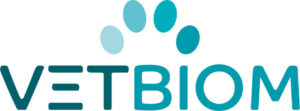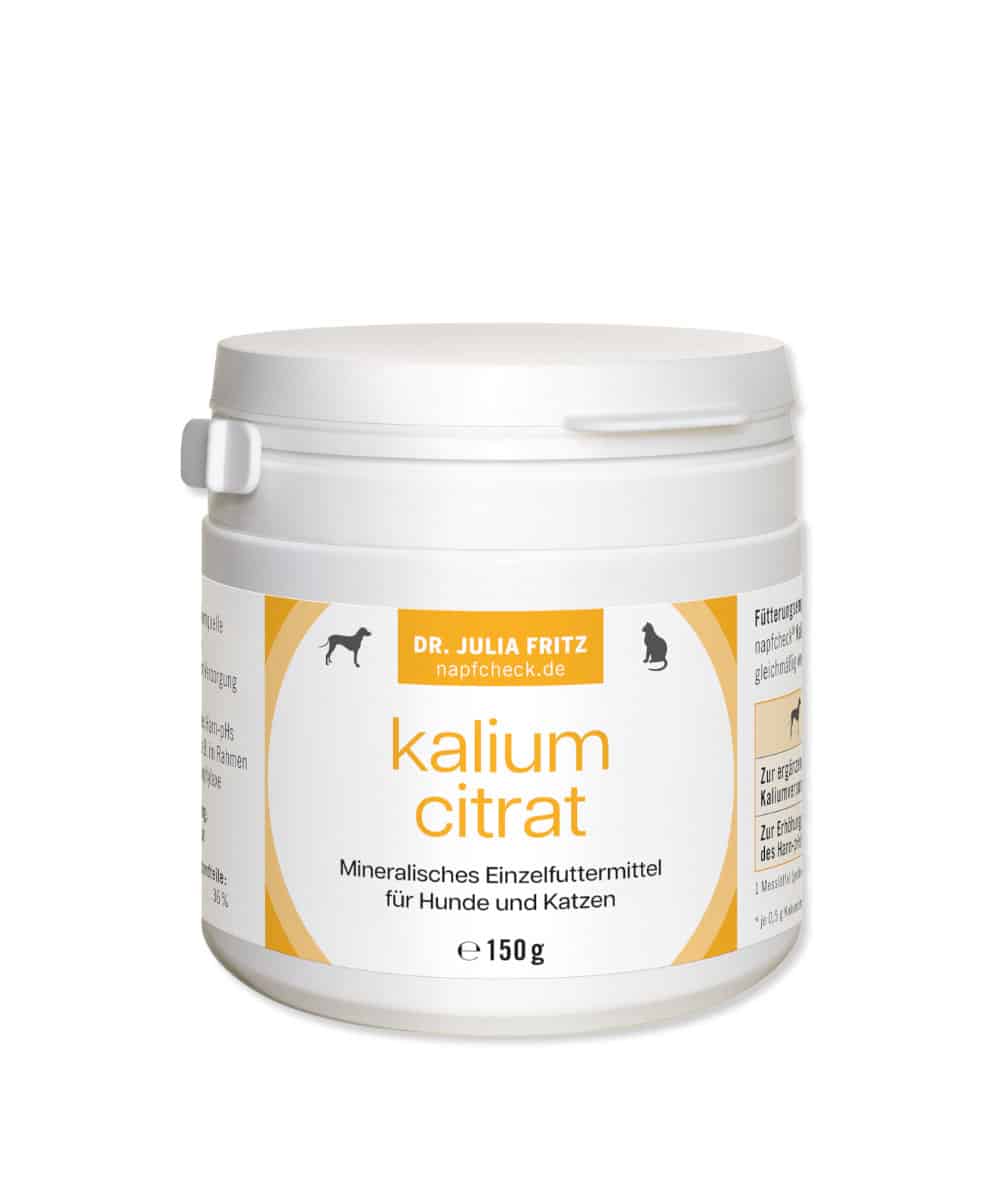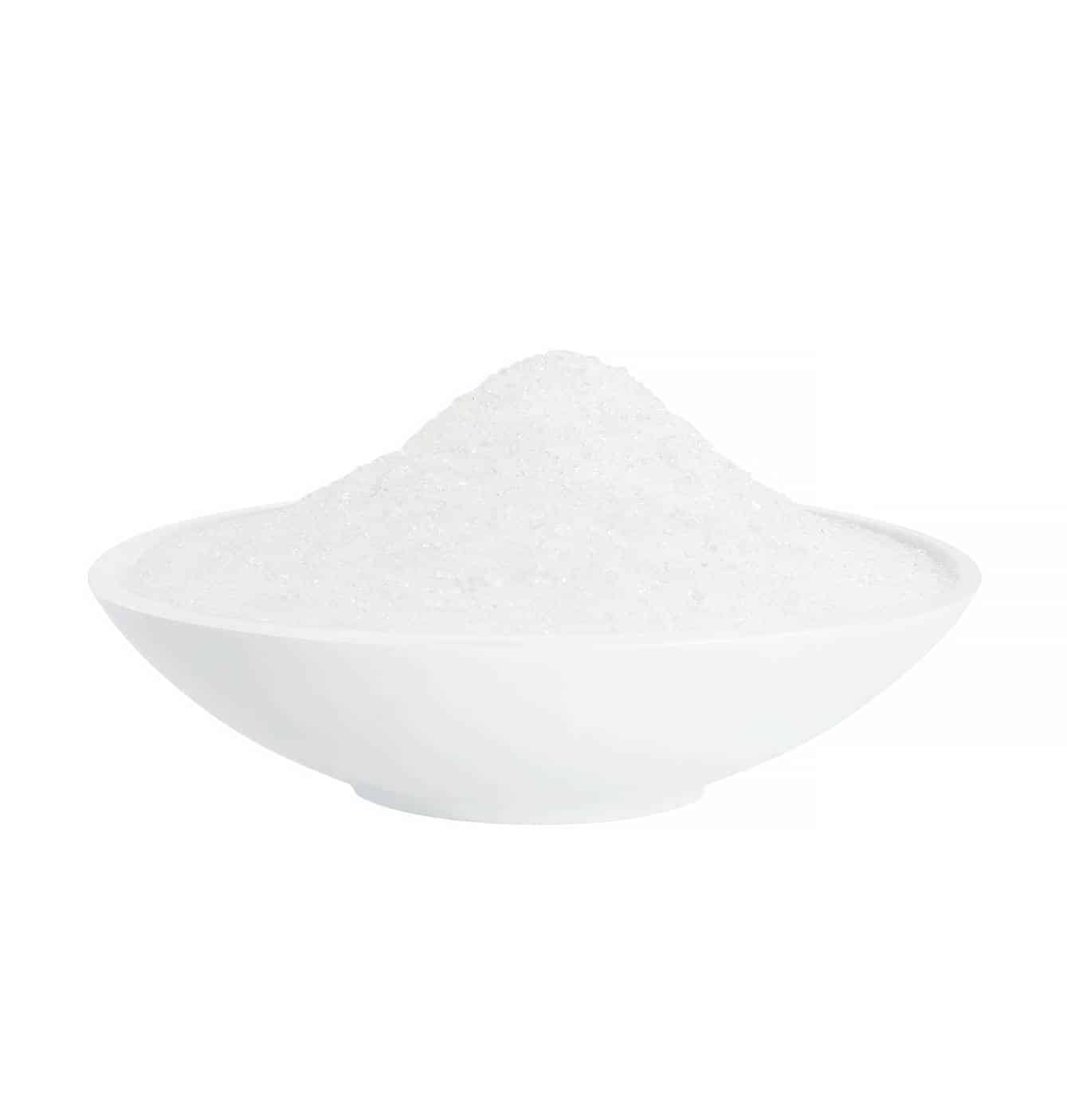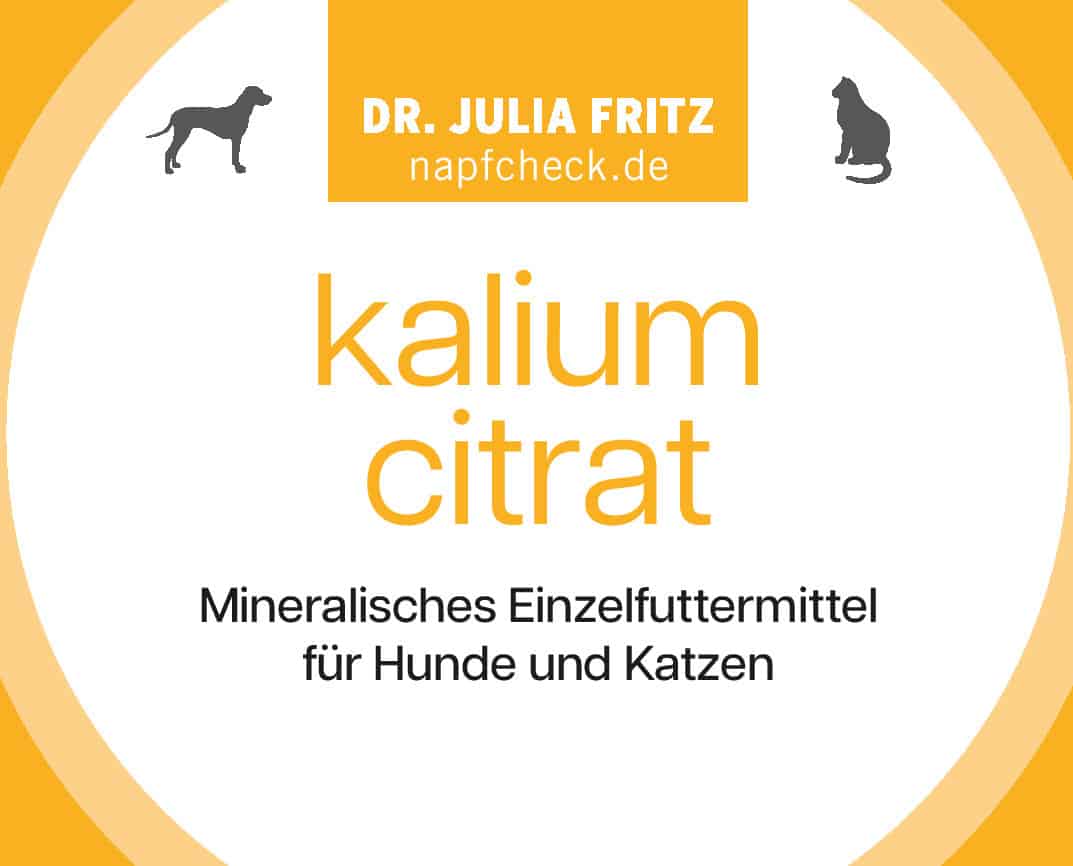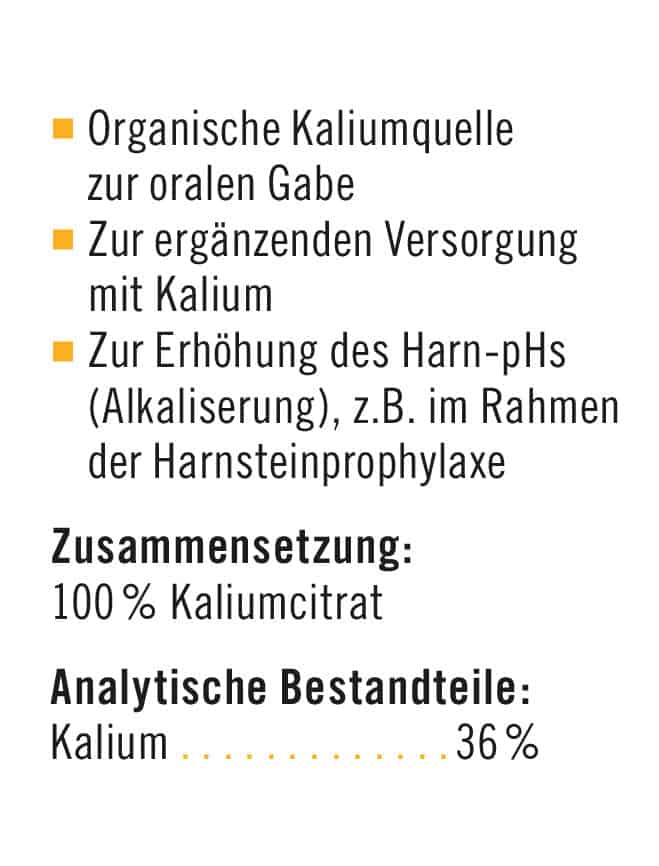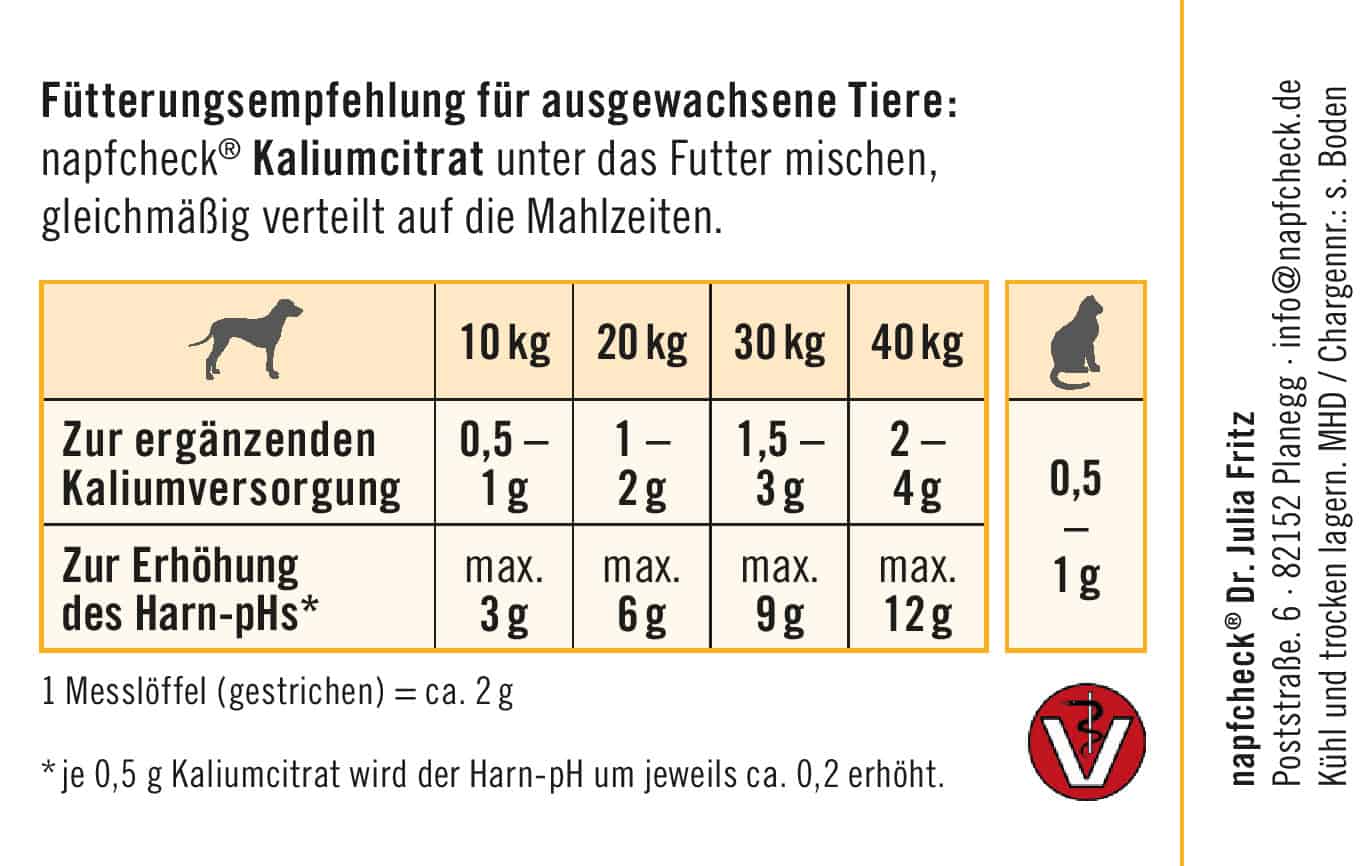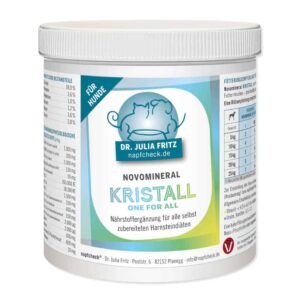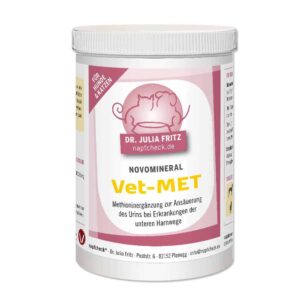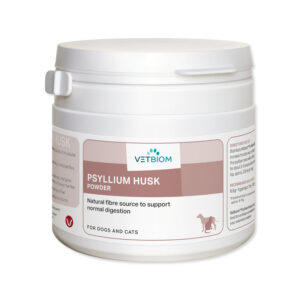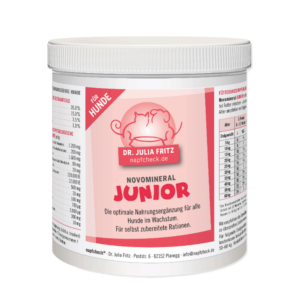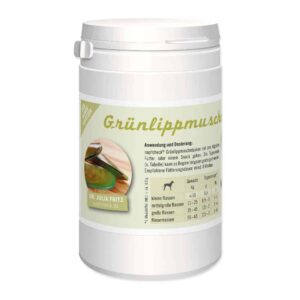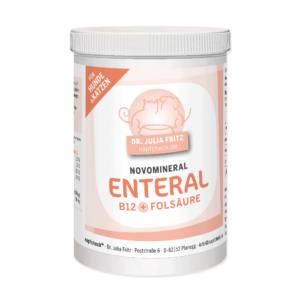napfcheck potassium citrate - for alkalizing the urine (increasing the urine pH) in urinary stone diets
Our potassium citrate scores with its high quality, simple dosage and good acceptance.
Who is napfcheck potassium citrate suitable for?
- Adult dogs and cats
- For all types of feed (ready-made feed and self-prepared rations)
- Also for animals with digestive sensitivities
- For daily and long-term administration
Good to know:
- Developed by a veterinary specialist on the basis of decades of experience in nutritional advice
- Also for urinary stone prophylaxis
- Proven and tested in hundreds of case studies
- Domestic production
- Ultra-pure substance - suitable for food-sensitive and allergic dogs and cats
- Odorless - good acceptance
- Also suitable as a supplementary supply of potassium
- Organic potassium source in powder form for convenient oral administration
Recommended urine pH for:
- Calcium oxalate: approx. 7.0
- Urates, xanthine: 6.5 - 7.2
- Cystine: approx. 7.5
Composition: 100 % potassium citrate
Analytical constituents: Potassium 36 %
Straight feeding stuff for dogs and cats - including measuring cup
Feeding recommendation for adult dogs and cats: simply mix napfcheck® potassium citrate into the food, evenly distributed over the meals. One measuring spoon (level) corresponds to approx. 2 g.
- Recommended dosage for cats: 0.5-1 g per animal per day
- Recommended dosage for dogs:
| Body weight |
5 kg |
10 kg |
20 kg |
30 kg |
40 kg |
50 kg |
| For the supplementary daily supply of potassium |
0,25 - 0,5 g |
0,5 - 1 g |
1 - 2 g |
1,5 - 3 g |
2 - 4 g |
2,5 - 5 g |
| Maximum daily amount to increase the urine pH* |
1,5 g |
3 g |
6 g |
9 g |
12 g |
15 g |
*0.5 g potassium citrate increases the urine pH by approx. 0.2 in each case.
General recommendation for urine pH for:
- Struvit: < 6,9 zur Prophylaxe und < 6,5 zur Auflösung
- Calcium oxalate: approx. 7.0
- Urates, xanthine: 6.5 - 7.2
- Cystine: approx. 7.5
A high fluid intake is very important for urinary stones (e.g. via wet/fresh food or soaked dry food). The following foods should always be avoided.
- Struvite: No bones, potatoes or large amounts of meat
- Calcium oxalate: No bones, additional sources of calcium, dark leafy vegetables, beet, nuts, whole grain products, offal or buffalo hide bones
- Urates, xanthine: No offal, fish, brewer's yeast, algae and shellfish products or high amounts of meat
- Cystine: No eggs or high amounts of meat
For individual feeding plans, consult a specialist vet or nutritionist.
Note: If a disease is diagnosed, a diet recommendation cannot replace treatment by a vet!
